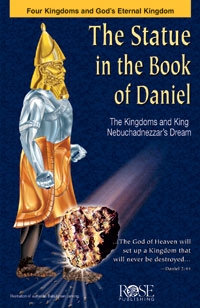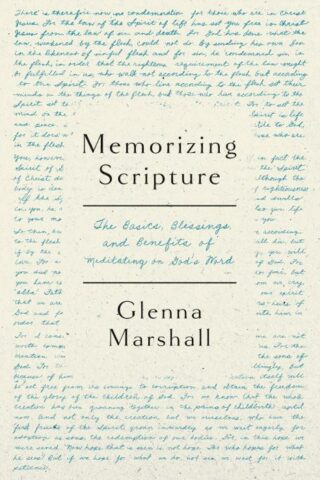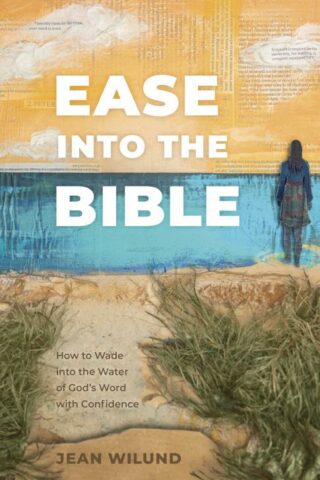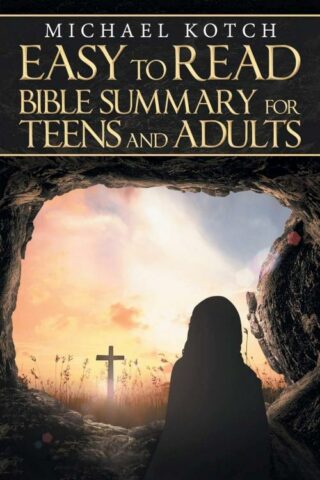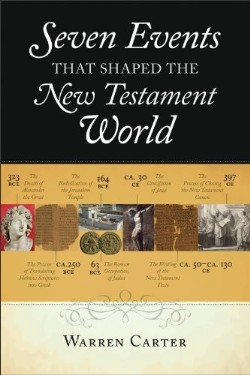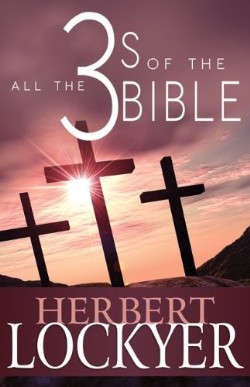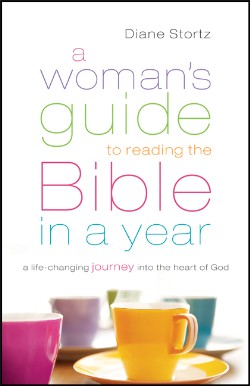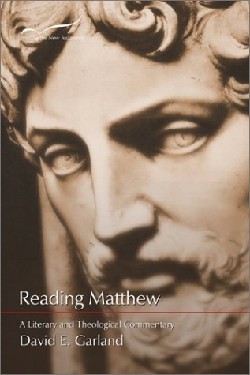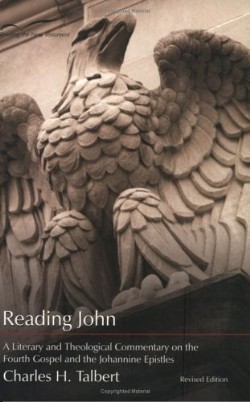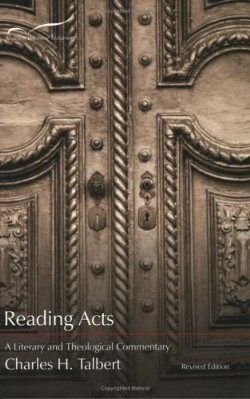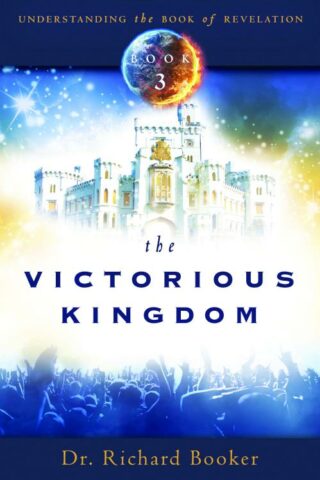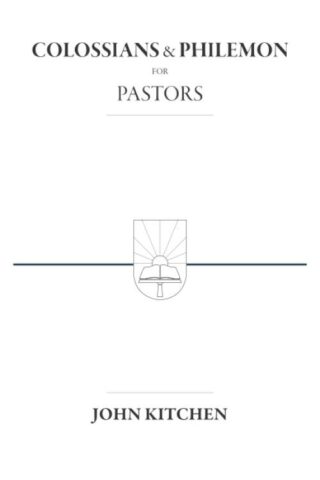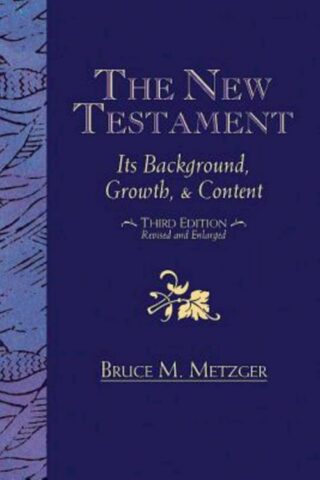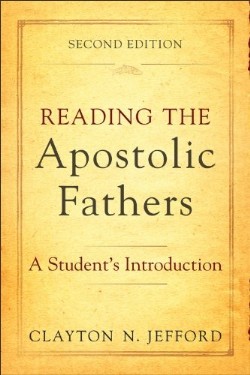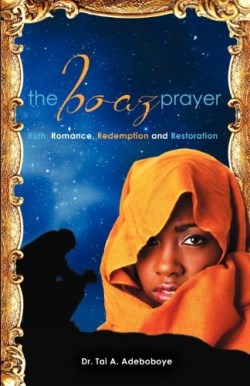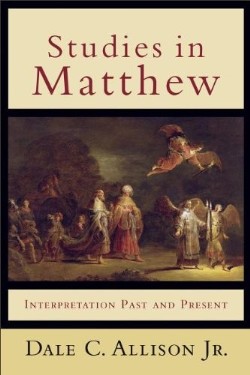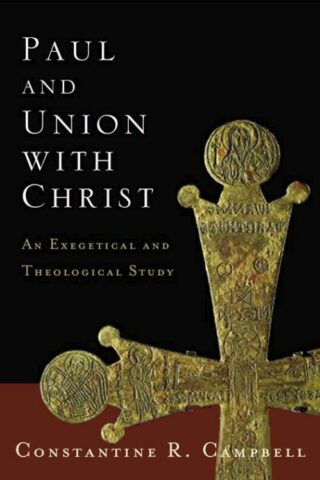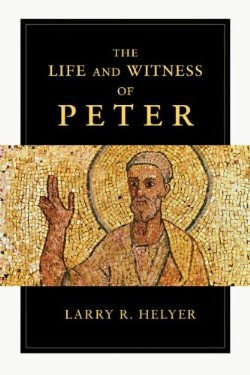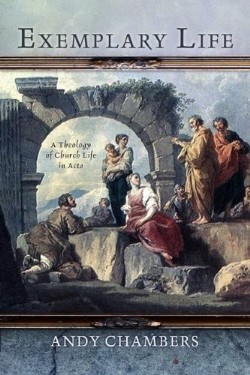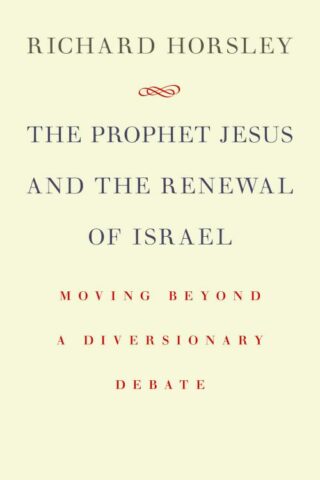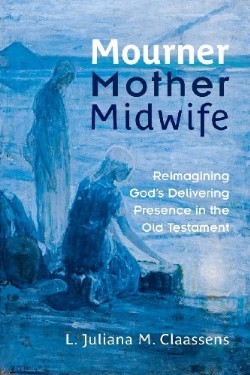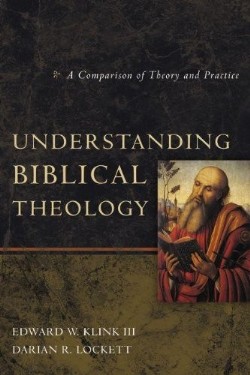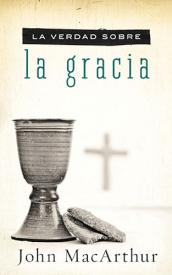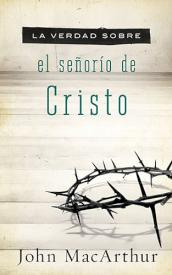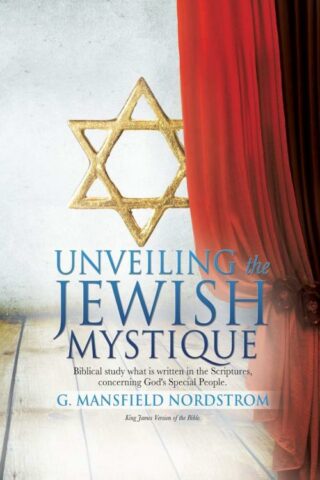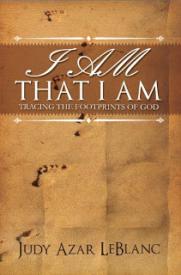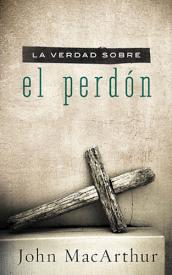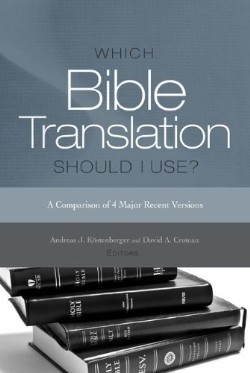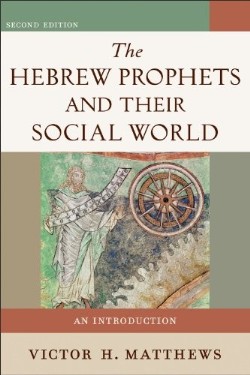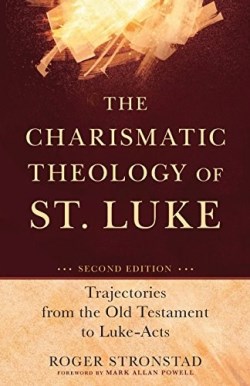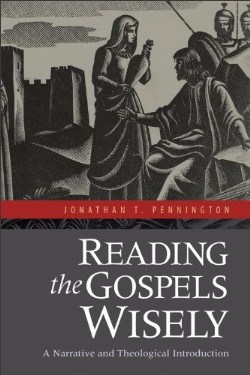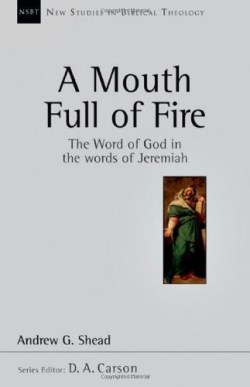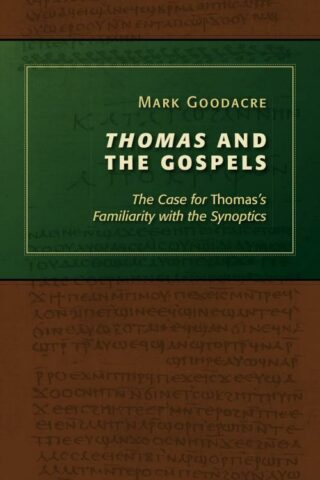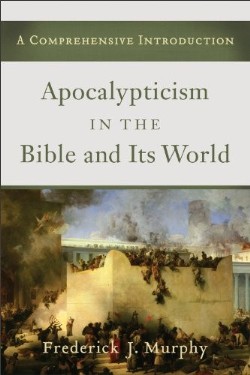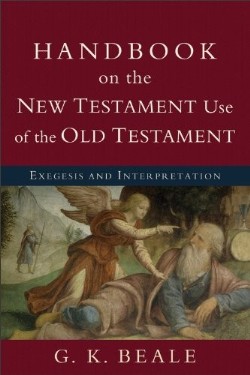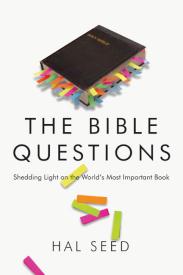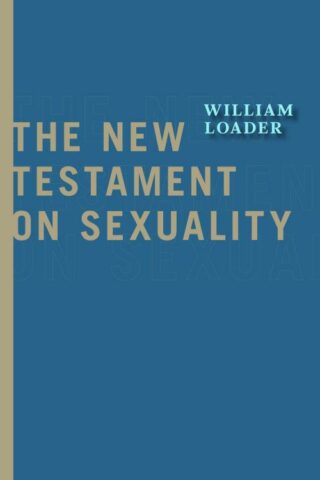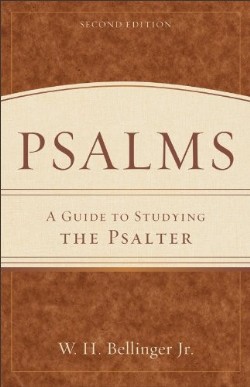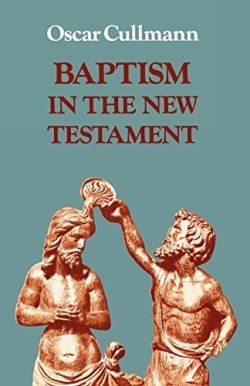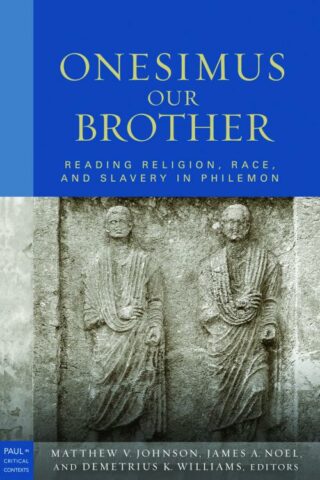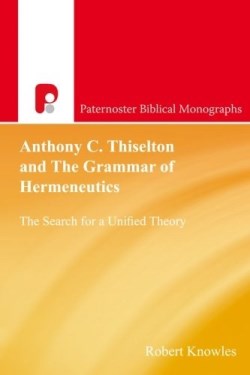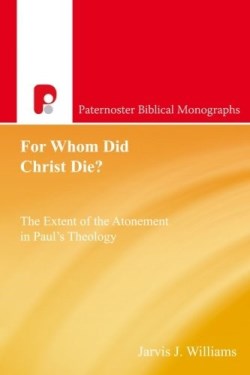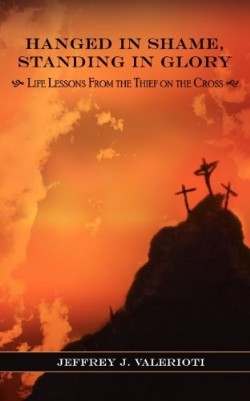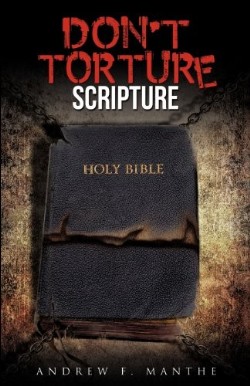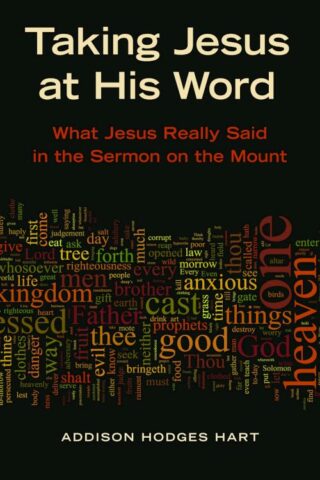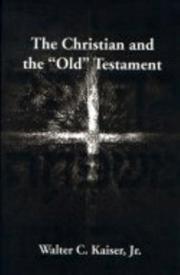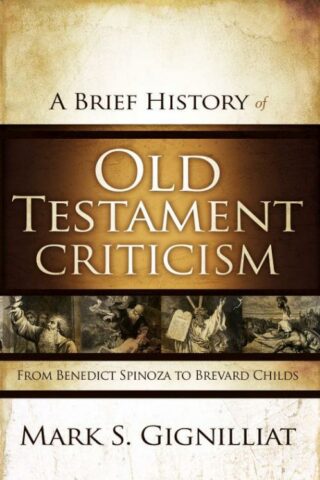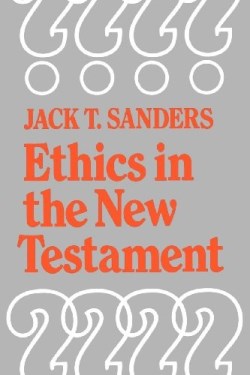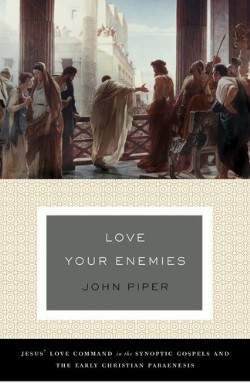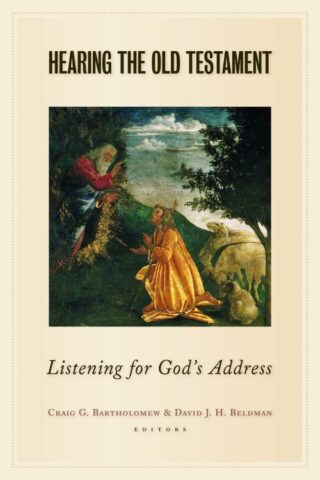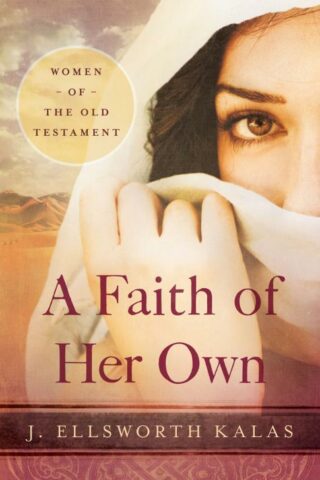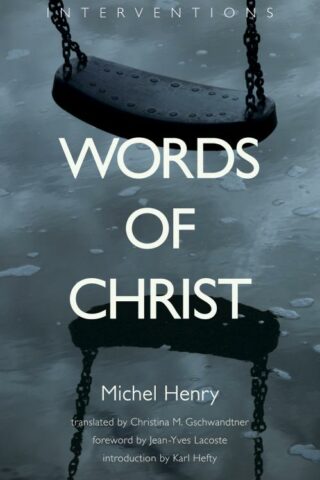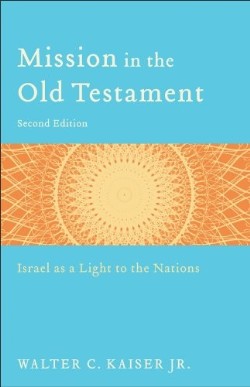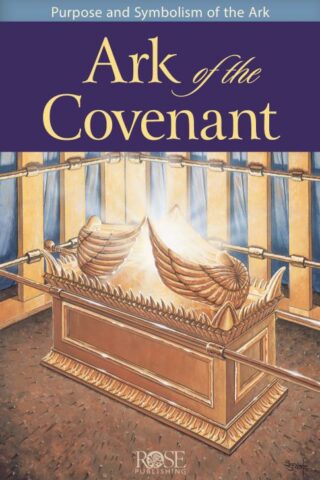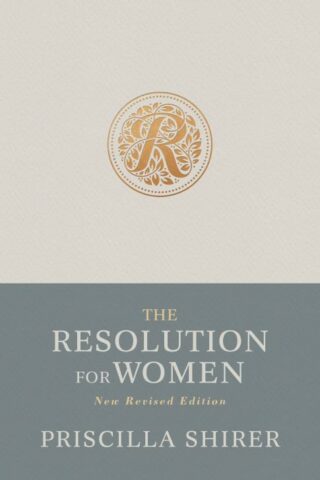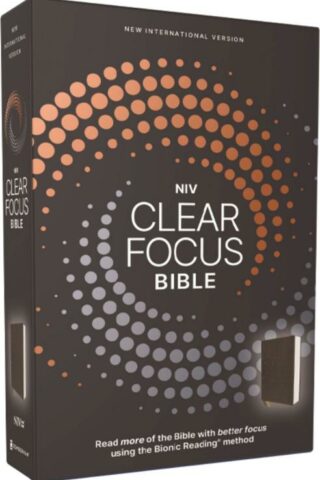Biblical Studies
Showing 801–850 of 1463 resultsSorted by latest
-
7 Events That Shaped The New Testament World (Reprinted)
$30.58This useful, concise introduction to the worlds around the New Testament focuses on seven key moments in the centuries before and after Jesus. It enlightens readers about the beginnings of the Christian movement, showing how religious, political, and economic factors were interwoven in the fabric of the New Testament world.
Leading New Testament scholar Warren Carter has a record of providing student-friendly texts. This introduction offers a “big picture” focus and is logically and memorably organized around seven events, which Carter uses as launching pads to discuss larger cultural dynamics and sociohistorical realities that were in some way significant for followers of Jesus and the New Testament. Photos and maps are included.
Add to cartin stock within 3-5 days of online purchase
-
All The 3s Of The Bible
$30.00A Wealth of Scriptural Symbolism and Truth in the Number 3
The three-in-one nature of the Trinity…
The three features of the priesthood…
The three harvest fruits…
The three glorious appearances…
The three gifts of the Magi…
The three tenses of salvation…
The three crosses…
The three phases of the risen Christ…
The three witnesses in Revelation…
And many more…Bible teacher Dr. Herbert Lockyer’s exhaustive study of the number three throughout Scripture is a great resource for pastors, Bible study and youth group leaders, Sunday school instructors, and for any believer who desires to delve deeper into Scripture. You’ll be amazed at the spiritual truths that can be unpacked by the biblical meanings of a simple number.
Add to cartin stock within 3-5 days of online purchase
-
Womans Guide To Reading The Bible In A Year (Reprinted)
$13.99Many women feel overwhelmed at the thought of reading the Bible in a year. Diane Stortz found that it is not only possible but life-changing. Her journey from initial reluctance to excitement about reading the Bible will inspire readers to try it for themselves.
Part of a women’s group that read through the Bible each year for ten years, the author discovered the value of reading the Bible to get to know God better rather than viewing it only as a book to study. This guide will give women tools to read and discuss the Bible together, drawing them closer to God and each other.
Includes a week-by-week reading plan, discussion guide, lists of what to look for, and motivational quotes.
Add to cartin stock within 3-5 days of online purchase
-
Reading Matthew : A Literary And Theological Commentary (Revised)
$40.29Editor’s Preface
Preface
Introduction
Chapter 1. Matthew 1:1-4:16:Introducing Jesus The Messiah, The Son Of God
Introduction
The Birth Of The Messiah
The Fulfillment Of God’s Promises (1:1-25)
From Judea Of David To The Galilee Of The Gentiles (2:1-23)
Getting Ready: God’s Son In The Wilderness (3:1-17)
God’s Son Who Fulfills All Righteousness (3:1-17)
God’s Son Who Vanquishes Satan (4:1-11)
Dispelling The Darkness In Galilee (4:12-16)Chapter 2. Matthew 4:17-16:20: Jesus’ Ministry To Israel
Part 1: Teaching, Healing, And Calling Lost Sheep, 4:17-11:1
Jesus’ Debut: Authority And Compassion (4:17-25)
Magisterial Teaching: A Charter For Discipleship (5:1-8:1)
A New Moses? (5:1-2)
Congratulations Are In Order (5:13-16)
Changing The World (5:13-16)
The Fulfillment Of The Law (5:17-19)
Restoring God’s Intention In The Law (5:20-48)
Acts Of Devotion: For Applause Or For God? (6:1-18)
What To Do About Money? (6:19-34)
Relating To Others (7:1-12)
Warning: Obedience Is Not Optional (7:13-7:27)
Restoring Life To Others (8:2-9:35)
Great Harvest And Great Dangers (9:36-10:42)
Part 2: Rejection And Confession, 11:1-16:20
Doubt, Indifference, And Dissent (11:2-12:45)
The Mysteries Of The Kingdom Revealed (12:46-13:58)
Power And Mercy For God’s People (14:1-36)
Bread For All (15:1-16:12)
Building The Church On Bedrock (16:13-20)Chapter 3. Matthew 16:21-28:20: Jesus’ Passion And Resurrection
Introduction
The Shadow Of Death And The Promise Of Glory (16:21-17:23)
Living Together As The Family Of God (17:24-18:35)
What’s In It For Us?
The Demands And Rewards Of The Kingdom (19:1-20:16)
Jerusalem Meets Its King (20:17-21:22)
Jesus Lord In The Temple (21:23-22:46)
False Teachers Lead Others To Ruin (23:1-39)
Judgment Is Coming (24:1-25:46)
The Life-Giving Death Of The Rejected Messiah (26:1-27:56)
The Victorious Breakthrough (27:57-28:20)Order This Book From Our Online Bookstore
Additional Info
Reading Matthew provides thorough guidance through Matthew’s story of Jesus. Garland’s commentary reveals the movement of the story’s plot while also highlighting the theology of Matthew. Reading Matthew is an essential book for studnets and ministers studying the first GospelAdd to cartin stock within 3-5 days of online purchase
-
Reading John : A Literary And Theological Commentary On Fourth Gospel And J (Rev
$41.47General Editor’s Preface
Preface
Introduction
The Johannine Epistles
Chapter 1. Introduction
Chapter 2. Getting Oriented (2,3 John; 1 John 1:1-5)
Chapter 3. Walking In The Light (1 John 1:6-2:17,2:18-28)
Chapter 4. Discerning The Spirits (1 John 2:29-3:24a; 3:24b-4:6)
Chapter 5. Perfect Love And Proper Belief (1 John 7-12;4:13-16a;4:16b-5:4a;5:4b-12)
Chapter 6. Bases For Christian Confidence (1 John 5:13,14-21)
The Fourth Gospel
Chapter 7. Introduction
Chapter 8. A Revealing, Empowering Presence (John 1:1-18)
Chapter 9. Creator Of A New Community (John 1:19-2:12)
Chapter 10. Proponent Of A New Birth (John 2:13-3:21)
Chapter 11. The Object Of The Baptist’s Praise (John 3:22-4:3)
Chapter 12. The Savior Of The World (John 4:4-44,45-54)
Chapter 13. Dutiful Apprentice Of The Father (John 5:1-47)
Chapter 14. The Bread Of Life (John 6:2-71)
Chapter 15. Water Of Life/Light Of The World (John 7:1-9:41)
Chapter 16. The Door/The Good Shepherd (John 10:1-11:54)
Chapter 17. The One Whose Hour Has Come (John 11:55-12:50)
Chapter 18. Washer Of The Disciples’ Feet (John 13:1-35)
Chapter 19. The Way, The Truth, And The Life (John 13:31-14:31)
Chapter 20. The True Vine (John 15:1-16:33)
Chapter 21. The Intercessor (John 17:1-26)
Chapter 22. The Enthroned King (John 18-19)
Chapter 23. The Living Lord (John 20-21)Additional Info
Reading John concentrates on the literary and theological distinctives of the Fourth Gospel and the Johannine Epistles. New Testament scholar Charles Talbert’s unique commentary considers the entire scope of these works attributed to John, their literary settings and particularities, and their continuing theological importance to the Christian story. Thoughtful and engaging, Reading John is an essential book for students and ministers studying the New Testament and the Johannine writings.Add to cartin stock within 3-5 days of online purchase
-
Reading Acts : A Literary And Theological Commentary On Acts Of The Apostle
$39.11Editor’s Preface
Preface
Introduction
Chapter 1. Acts: An Introduction
Chapter 2. Receiving And Preparing For Mission (Acts 1)
Watching And Waiting (Acts 1:1-14)
Replacing Judas (Acts 1:15-26)Chapter 3. Fulfilling The Mission: Phase One (Acts 2:1-12:25)
Pentecost (Acts 2:1-47)
The Dual Witness (Acts 3:1-4:23)
Hostility Grows (Acts 4:24-5:42)
Martyrdom (Acts 6:1-8:4)
Philip’s Mission (Acts 8:4-40)
Paul’s Conversion (Acts 9:1-31)
Peter’s Witness In Judea (Acts 9:32-11:18)
Nothing Can Stop The Gospel (Acts 11:19-12:25)Chapter 4. Fulfilling The Mission: Phase Two (Acts 13:1-28:31)
Paul’s First Missionary Journey (Acts 13:1-14:28)
The Jerusalem Council (Acts 13:1-14:28)
Paul In Philippi (Acts 16:6-40)
Paul In Thessalonica, Beroea, And Athens (Acts 17:1-34)
Paul In Corinth And Beyond (Acts 18:1-18,19-23)
In Ephesus (Acts 18:24-20:1)
To Jerusalem (Acts 20:1-21:26)
Witness In Jerusalem (Acts 21:26-23:10)
Declared Innocent By Rulers (Acts 23:11-26:32)
Declared Innocent By God (Acts 27:1-28:16)
Witness In Rome (Acts 28:16-31)Additional Info
Answers to the usual introductory questions do not yield sufficient harvest to enable an intelligent reading of Acts. The approach of Reading Acts is to ask how ancient Mediterranean auditors would have heard Acts when it was read in their presence. To be successful Talbert divides this approach into two parts–how Acts would have been heard in its precanonical context and in its canonical context.Add to cartin stock within 3-5 days of online purchase
-
Victorious Kingdom
$21.23Victory-not gloom and doom!
Understanding the Book of Revelation for Today
The Book of Revelation is not a book of doom and gloom but rather the story of victory of the Lamb of God and those who follow Him. In this third book in a groundbreaking series, Dr. Richard Booker explains John’s vision within its original historical, literary, and biblical context.
Written in Dr. Booker’s usual clear style, The Victorious Kingdom is powerful, prophetic, practical, and personal-ideal for individual or group study. The Victorious Kingdom, shares fresh perspectives that include:
*Reading Revelation within the context of its biblical Jewish roots
*Learning the historical and spiritual background of the seven churches (congregations)
*Learning the influence of Greek mythology and Roman imperial cult worshipUnderstanding the Book of Revelation is a three-volume series that helps you see the future by examining the past: Volume 1-The Overcomers, Volume 2-The Lamb and the Seven-Sealed Scroll, andVolume 3-The Victorious Kingdom.
Add to cartin stock within 3-5 days of online purchase
-
New Testament : Its Background Growth And Content
$35.99This text is a classic by one of America’s most widely respected New Testament scholars. It provides a clear and comprehensive introduction to the New Testament. In a straightforward and understandable style–without distortion or oversimplification–Prof. Metzger closely examines the historical background and content of the New Testament and details the role of scribes and translators in handing the Scriptures down through the centuries. Utilizing the finest modern scholarship, Dr. Metzger looks at the people, societies, and events that produced the New Testament. Palestinian Judaism, Greco-Roman paganism, sources of our knowledge of Jesus Christ, essential aspects of Christ’s teaching, sources and chronology of the apostolic age, the work of Paul, the general letters, and the Book of Revelation are all clearly illuminated. The Second edition of this book added an appendix on the formation of the canon of the New Testament and the work of scribes. The third edition will represent a substantial update of the 1965 text based on the New Revised Standard Version. In addition to stylistic changes, the author updates the text regarding research on the Dead Sea Scrolls and the Nag Hammadi tractates. This edition adds a glossary, 30 graphics and photos, and is resized to a larger 6×9 page.
Add to cartin stock within 3-5 days of online purchase
-
Reading The Apostolic Fathers
$44.70The Apostolic Fathers are critically important texts for studying the first century of Christian history. Here a leading expert on the Apostolic Fathers offers an accessible, up-to-date introduction and companion to these diverse and fascinating materials. This work is easy to use and affordable yet offers a thorough overview for students and others approaching these writings for the first time. It explains the context and significance of each document and points to further reading. This new edition of a well-received text has been updated throughout and includes a new chapter on the fragments of Papias.
Add to cartin stock within 3-5 days of online purchase
-
Boaz Prayer : Ruth Romance Redemption And Restoration
$15.95Have you ever discovered priceless gems in the most strangest of places? The Boaz Prayer is one of those priceless gems you will find in the most strangest of places- hidden in the deep, rugged, dark corners of a place called nowhere. Like a rose trampled on the ground, like an oasis in the middle of a parched desert, the Boaz Prayer found in the book of Ruth adds elegance, grace and romance to an otherwise depressing milieu. This is so especially when you realize that Ruth lived during the days when the judges governed and utter hopelessness filled the land. What an array of hope the Boaz Prayer affords to Ruth in particular and to many generations later. In spite of the bleak conditions of our times we need to be reminded that God still answers Boaz-like prayers. For those who will pray daring prayers, God can still turn our tragedies into triumphs, our tests into testimonies, our defeats into destiny and our mess into a message of Romance, Redemption and Restoration.
Add to cartin stock within 3-5 days of online purchase
-
Studies In Matthew
$40.00The author of a leading major critical commentary on Matthew here offers further insights into the Gospel and the history of its interpretation. Writing with theological sensitivity and a deft literary touch, he presents thirteen essays–nine previously unpublished and four thoroughly revised–on key passages, on structural features of the Gospel, and on patristic and modern interpretation. Exegetes, preachers, students, and other lovers of biblical narrative will read Studies in Matthew with profit and delight.
Add to cartin stock within 3-5 days of online purchase
-
Paul And Union With Christ
$34.99Paul and Union with Christ fills the gap for biblical scholars, theologians, and pastors pondering and debating the meaning of union with Christ. Following a selective survey of the scholarly work on union with Christ through the twentieth century to the present day, Greek scholar Constantine Campbell carefully examines every occurrence of the phrases ‘in Christ’, ‘with Christ’, ‘through Christ’, ‘into Christ,’ and other related expressions, exegeting each passage in context and taking into account the unique lexical contribution of each Greek preposition. Campbell then builds a holistic portrayal of Paul’s thinking and engages contemporary theological discussions about union with Christ by employing his evidence-based understanding of the theme. This volume combines high-level scholarship and a concern for practical application of a topic currently debated in the academy and the church. More than a monograph, this book is a helpful reference tool for students, scholars, and pastors to consult its treatment of any particular instance of any phrase or metaphor that relates to union with Christ in the Pauline corpus.
Add to cartin stock within 3-5 days of online purchase
-
Life And Witness Of Peter
$39.99Preface
1. Background Of Peter
2. Peter In The Gospels: Part One: From Call To Confession
3. Peter In The Gospels: Part Two: Transfiguration To Resurrection
4. Peter And The Early Church: The Book Of Acts
5. Peter In Paul’s Letters
6. 1 Peter: Encyclical To Exiles
7. Peter’s Christology
8. Christ & The Spirits, Christ And The Holy Spirit
9. Suffering For Jesus
10. The People Of God
11. 2 Peter: Introductory Questions
12. Theological Themes In 2 Peter
13. The Character And Destiny Of The False Teachers
14. Eschatology Of 2 Peter
15. The Rest Of The Story: Tradition
16. The Rest Of The Story: Legends About Peter
17. The Rest Of The Story: Peter’s LegacyAdditional Info
Who was Peter and what was his true stature in the early church? For Protestants at least, Peter seems caught between two caricatures: the rustic fisherman of Galilee and the author of two lesser New Testament letters. And in both cases he is overshadowed by Paul. Yet Peter plays a significant role in the Gospels and is an apostolic leader in Acts. And those who study his letters find them filled with theological insight. In The Life and Witness of Peter Larry Helyer seeks to reinstate this neglected and underestimated apostle to his rightful stature as an early Christian leader and faithful witness to Christ. Arguing for a more confident assessment of the apostle’s presence and contribution to the New Testament, Helyer pulls Peter out from the long shadow of Paul. What we find is a Peter whose firsthand witness stands behind much of Mark’s Gospel, a Peter whose striking portrait in Acts can be trusted as reliable, and a Peter whose letters glow with spiritual and theological intelligence. Along the way we are rewarded with a careful analysis of prominent theological themes in Peter’s letters. And we learn much about the traditions, legends and legacy of Peter in the post-apostolic era.Add to cartin stock within 3-5 days of online purchase
-
Exemplary Life
$29.99Exemplary Life articulates the apostle Luke’s vision for life together in a local church using key passages from Acts 2:42-47; 4:32-35; and 5:12-16 (known as “summary narratives”) as the starting point of reference. Although Luke is rightly acclaimed as the church’s first historian, he was a powerful writer and theologian as well. He also planted churches with Paul and had definite convictions about what life together in the church should look like. Yet, Luke’s theology of church life is underemphasized in modern scholarship, downplayed by issues rising from the historical-critical method.However, when the summary narratives are studied through the lens of narrative and rhetorical criticism, Luke’s strategy is unmistakable. Those passages cast a vision for life together in an exemplary church, drawn from the historical circumstances of the church in Jerusalem. These narratives also serve as a starting point for studying church life throughout Acts. When the church planting movements in Samaria, Antioch, Ephesus, and Troas are examined, we find echoes of the narratives almost constantly. These amplify and drive home Luke’s message in the summary narratives.Taking this path, twenty distinct characteristics of exemplary church life emerge. From repentance and Scriptural authority to praying together and earning the respect of neighbors, each one is thoughtfully presented here by author Andy Chambers to reassert Luke’s voice in 21st century conversations about the faithful formation of New Testament churches.
Add to cartin stock within 3-5 days of online purchase
-
Prophet Jesus And The Renewal Of Israel
$23.99Debate over whether or not Jesus can be best interpreted within an “apocalyptic scenario” has continued to dominate historical Jesus studies since Schweitzer and Bultmann. In The Prophet Jesus and the Renewal of Israel Richard Horsley shows that the apocalyptic scenario — with its supposed expectation of “the end of the world,” the fiery “last judgment,” and “the parousia of the Son of Man” — is a modern scholarly construct that obscures the particulars of texts, society, and history. Drawing on his wide-ranging earlier scholarship, Horsley refocuses and reformulates investigation of the historical Jesus in a thoroughly relational-contextual approach. He recognizes that the sources for the historical Jesus are not separate sayings, but rather the sustained Gospel narratives of Jesus’ mission. Horsley’s new approach finds Jesus the popular prophet engaged in a movement of renewal, resistance, and judgment against Roman imperialism, Jerusalem rulers, and the Pharisees.
Add to cartin stock within 3-5 days of online purchase
-
Mourner Mother Midwife
$30.00Traditional understandings of God as deliverer depict God as a mighty liberator-warrior and wrathful avenger. Juliana Claassens explores alternative Old Testament metaphors that portray God as mourner, mother, and midwife-images that resist the violence and bloodshed associated with the dominant warrior imagery.
Claassens discusses how metaphors of God as life giver began to develop in the aftermath of the trauma of Israelite exile. She offers compelling examples of how this feminine imagery still has the power to inspire hope amidst violence in today’s world. She demonstrates that God’s delivering presence helps people of faith cope with trauma and suffering on many levels-individual, community, national, and global-while bringing forth new life out of death and destruction.
Add to cartin stock within 3-5 days of online purchase
-
Understanding Biblical Theology
$17.99Understanding Biblical Theology clarifies the catch-all term ‘biblical theology,’ a movement that tries to remove the often-held dichotomy between biblical studies for the Church and as an academic pursuit. This book examines the five major schools of thought regarding biblical theology and handles each in turn, defining and giving a brief developmental history for each one, and exploring each method through the lens of one contemporary scholar who champions it. Using a spectrum between history and theology, each of five ‘types’ of biblical theology are identified as either ‘more theological’ or ‘more historical’ in concern and practice: Biblical Theology as Historical Description (James Barr) Biblical Theology as History of Redemption (D. A. Carson) Biblical Theology as Worldview-Story (N. T. Wright) Biblical Theology as Canonical Approach (Brevard Childs) Biblical Theology as Theological Construction (Francis Watson).
A conclusion suggests how any student of the Bible can learn from these approaches.
Add to cartin stock within 3-5 days of online purchase
-
Verdad Sobre La Gracia – (Spanish)
$13.99A focused, powerful message about God’s character and the purpose of grace in the Christian life.
For decades, Dr. John MacArthur has encouraged countless Christians to develop a deeper understanding of the Bible and a greater respect for God’s truth. In The Truth About series, he now gathers his landmark teachings about core aspects of the Christian faith in one place. These powerful books are designed to give readers a focused experience that centers on God’s character and how it applies to their daily walk of faith.
In La verdad sobre la gracia, readers are taken through the Bible and encounter:
*Studies of key Bible characters
*Theological instruction
*Practical application points and ideas
*Inspiration to grow in an understanding of God’s graceGrace is the bedrock of humankind’s interaction with God. Without his grace, we are all doomed to failure and separation from him. In this book, readers see the pivotal role of grace in both their salvation and their everyday lives.
Add to cartin stock within 3-5 days of online purchase
-
Verdad Sobre El Senorio De Cri – (Spanish)
$13.99A focused, powerful message about Jesus, his relationship with God the Father, and his centrality in the Christian life.
For decades, Dr. John MacArthur has encouraged countless Christians to develop a deeper understanding of the Bible and a greater respect for God’s truth. In The Truth About series, he now gathers his landmark teachings about core aspects of the Christian faith in one place. These powerful books are designed to give readers a focused experience that centers on God’s character and how it applies to their daily walk of faith.
In La verdad sobre el seorio de Cristo, readers are taken through the Bible and encounter:
*Deep biblical exposition about Jesus
*Theological instruction
*Practical application points and ideas
*Inspiration to grow in the knowledge of the Lordship of ChristChrist Jesus is the very reason men and women can enjoy a relationship with God. Without him and the sacrifice he made, all would be hopeless and meaningless. In this book, readers are challenged to make Christ the center of their lives.
Add to cartin stock within 3-5 days of online purchase
-
Unveiling The Jewish Mystique
$22.48G. Mansfield Nordstrom an ordained Minister retired, an Evangelist and Teacher pastored and taught in a Bible College.Had a radio ministry 1951. Has been a Christian for 78 years, and is from a family of ministers, a grandfather , mother and two brothers. He writes as a undenominational teacher. He has two sons two daughters, six grandsons, one granddaughter, eight great-grandsons two great -grand daughters. Born in Ahmeek Michigan 1922. Ordained in 1948 in The American Mission Army and was a Captain. Civilian Chaplains Corp. Attended Glad Tidings Bible Institute now known as Bethany University at Scots Valley California.
Add to cartin stock within 3-5 days of online purchase
-
I Am That I Am
$29.95I AM THAT I AM, Tracing the Footprints of God is a book that you’ve always wanted to have in your library but could never find. I AM THAT I AM provides a biblically based, theologically sound narration of all eight covenants of God-presents main themes and summaries of over forty-five of Jesus’ timeless parables-describes over fifty supernatural miracles that God executed through the hands of Jesus-and traces over fifty divine names and titles reflecting different facets of God’s nature, character, and personality. The captivating pages offer commentaries by over seventy-five renowned bible scholars, includes full color archeological images of recent excavation findings of biblical events, and historical illustrations and map images showing relevance to contemporary locations-all uniquely woven into one convenient reader-friendly volume.
Add to cartin stock within 3-5 days of online purchase
-
Verdad Sobre El Perdon – (Spanish)
$14.99A focused, powerful message about forgiveness and its necessity in living a joy-filled Christian life.
For decades, Dr. John MacArthur has encouraged countless Christians to develop a deeper understanding of the Bible and a greater respect for God’s truth. In The Truth About series, he now gathers his landmark teachings about core aspects of the Christian faith in one place. These powerful books are designed to give readers a focused experience that centers on God’s character and how it applies to their daily walk of faith.
In La verdad sobre el perdon, readers are taken through the Bible and encounter:
*Studies of key Bible characters
*Theological instruction
*Practical application points and ideas
*Inspiration to readily give and humbly receive forgivenessForgiveness is a fundamental means by which we live out our faith daily. Having experienced God’s forgiveness, Christians find joy in forgiving other people. This book inspires readers to develop a merciful spirit, and warns them what can happen if they are unwilling to forgive others.
Add to cartin stock within 3-5 days of online purchase
-
Which Bible Translation Should I Use
$14.99One of the most frequently asked questions related to the Bible is, “Which Bible translation should I use?” People often wonder what is the all-around best English Bible translation available. In this book, Douglas Moo, Wayne Grudem, Ray Clendenen, and Philip Comfort make a case for the Bible translation he represents: the NIV 2011 (New International Version), the ESV (English Standard Version), the HCSB (Holman Christian Standard Bible), and the NLT (New Living Translation) respectively.
In each case, the contributors explain the translation philosophy under- lying these major recent versions. They also compare and contrast how specific passages are translated in their version and other translations.
Which Bible Translation Should I Use? is ideal for anyone who is interested in the Bible and wants to know how the major recent English translations compare. After you’ve read this book, you will be able to answer the title question with confidence. You will also learn many other interesting details about specific passages in the Bible from these top experts.
Add to cartin stock within 3-5 days of online purchase
-
Hebrew Prophets And Their Social World
$35.29Victor Matthews, a veteran teacher and expert on the world of ancient Israel, introduces students to the Hebrew prophets and their social world. Drawing on archaeology and ancient Near Eastern texts, Matthews examines the prophets chronologically, placing them and their message into historical context. He explores pertinent aspects of historical geography, economic conditions, and social forces that influenced a prophet’s life and message and explains why prophets served an integral purpose in the development of ancient Israelite religion. He also explores how prophets addressed their audience and employed rhetorical methods, images, and metaphors to communicate effectively. Logically organized, clearly written, and classroom friendly, this book meets the needs of beginning as well as advanced students. It is a substantially revised and expanded edition of the successful text Social World of the Hebrew Prophets.
Contents
Introduction
1. Historical Geography
2. Defining and Describing the Prophet
3. Premonarchic Prophetic Activity
4. Early Monarchic Prophets
5. Elijah and Elisha
6. Major and Minor Prophets
7. The Book of Amos
8. The Book of Hosea
9. The Book of Isaiah
10. The Book of Micah
11. Prophetic Voices of the Late Seventh Century
12. The Book of Jeremiah
13. The Book of Ezekiel
14. Postexilic Prophecy
15. The Hellenistic Period and the Book of Daniel
16. Final Thoughts
Glossary
IndexesAdd to cartin stock within 3-5 days of online purchase
-
Charismatic Theology Of Saint Luke (Reprinted)
$25.88What is the meaning of the Holy Spirit’s activity in Luke-Acts, and what are its implications for today? Roger Stronstad offers a cogent and thought-provoking study of Luke as a charismatic theologian whose understanding of the Spirit was shaped wholly by his understanding of Jesus and the nature of the early church. Stronstad locates Luke’s pneumatology in the historical background of Judaism and views Luke as an independent theologian who makes a unique contribution to the pneumatology of the New Testament. This work challenges traditional Protestants to reexamine the impact of Pentecost and explores the Spirit’s role in equipping God’s people for the unfinished task of mission. The second edition has been revised and updated throughout and includes a new foreword by Mark Allan Powell.
Contents
Foreword by Mark Allan Powell
Preface to the Second Edition
1. The Holy Spirit in Luke-Acts
2. The Holy Spirit in the Old Testament
3. The Holy Spirit in the Gospel of Luke
4. The Holy Spirit at Pentecost
5. The Holy Spirit in the Acts of the Apostles
6. The Charismatic Theology of St. Luke
IndexesAdd to cartin stock within 3-5 days of online purchase
-
Reading The Gospels Wisely (Reprinted)
$35.29This textbook on how to read the Gospels well can stand on its own as a guide to reading this New Testament genre as Scripture. It is also ideally suited to serve as a supplemental text to more conventional textbooks that discuss each Gospel systematically. Most textbooks tend to introduce students to historical-critical concerns but may be less adequate for showing how the Gospel narratives, read as Scripture within the canonical framework of the entire New Testament and the whole Bible, yield material for theological reflection and moral edification.
Pennington neither dismisses nor duplicates the results of current historical-critical work on the Gospels as historical sources. Rather, he offers critically aware and hermeneutically intelligent instruction in reading the Gospels in order to hear their witness to Christ in a way that supports Christian application and proclamation.
Add to cartin stock within 3-5 days of online purchase
-
Mouth Full Of Fire
$32.99Series Preface
Author’s Preface
Abbreviations
Introduction: An Exercise In Theological Interpretation
Biblical Theology Or Theological Interpretation?
Reading Jeremiah As A Theological Book
Can Biblical Studies Admit Theological Readings And Remain Intact?
Can Theology Made From Retold Narrative Still Be Called Theology?
From Theology To Doctrine1. Word And Words In Jeremiah
The Suitability Of Jeremiah As A Source For Word Theology
The Distinctive Shape Of Jeremiah’s Word Theology
First Elements Of A Word Theology2. Structuring Jeremiah As A Narrative About The Word Of God
Establishing The Structure Of Jeremiah
A Narrative About The Word Of God
Concluding Reflections3. Word And Speaker
The Word Of God Is The Speech Of God
The Shape Of Jeremianic Discourse
Jeremiah In His Times
Jeremiah’s Call And Commissioning
The Voice Of God In Jeremiah 2:1–6:30
The Voice Of The Prophet In Jeremiah 14–15
Concluding Reflections4. Word And Hearers
The Covenant Preaching Of Jeremiah And The Prophets
Jeremiah Against The Prophets
The Hearers’ Dilemma: Jeremiah Or Hananiah?
‘The People’ In Jeremiah’s Preaching
Concluding Reflections5. Word And Power
The Power Of The Word Of God To Transform
Overcoming The Failure Of The Word: Jeremiah 30–31
Judgment Realized, Hope Deferred: Jeremiah 35–44
New Life Out Of Death: Jeremiah 50–51
How Does The Word Of God Exert Its Power?6. Word And Permanence
Writing In Deuteronomy
Jeremiah And Writing Jeremiah 36
Two Modern Challenges To The ‘Jeremiah 36 Paradigm’ Of Enscripturation
From Oral To Written: Recovering A ‘prophetic Paradigm Of Inspiration’
Concluding Reflections7. From The Book Of Jeremiah To The Doctrine Of The Word Of God
Words And Spirit In Jeremiah
The Word, The Words And Jesus Christ: Jeremiah In Conversation With Karl Barth
Theologies Of The Words And Word Of God
Jeremiah’s Doctrine Of The Word Of God
People Of The WordBibliography Index Of Modern Authors
Index Of Scripture ReferencesAdditional Info
I am putting my words as a fire in your mouth; these people are tender and it will consume them. (Jeremiah 5:14) In the book of Jeremiah, the vocabulary of “word” and “words” is not only uniquely prevalent, but formulae marking divine speech also play an unprecedented role in giving the book’s final form its narrative and theological shape. Indeed, “the word of the Lord” is arguably the main character, and a theology that is both distinctive and powerful can be seen to emerge from the unfolding narrative. In this stimulating study, Andrew Shead examines Jeremiah’s use of word language; the prophet’s formation as an embodiment of the word of God; his covenant preaching and the crisis it precipitates concerning the recognition of true prophecy; and, in the “oracles of hope,” how the power of the word of God is finally made manifest. Shead then brings this reading of Jeremiah to bear on some issues in contemporary theology, including the problem of divine agency and the doctrine of Scripture, and concludes by engaging Jeremiah’s doctrine of the Word of God in conversation with Karl Barth. The prophet’s major contribution emerges from his careful differentiation of “word” and “words.”Add to cartin stock within 3-5 days of online purchase
-
Thomas And The Gospels
$42.99The Gospel of Thomas — found in 1945 — has been described as “without question the most significant Christian book discovered in modern times.” Often Thomas is seen as a special independent witness to the earliest phase of Christianity and as evidence for the now-popular view that this earliest phase was a dynamic time of great variety and diversity.
In contrast, Mark Goodacre makes the case that, instead of being an early, independent source, Thomas actually draws on the Synoptic Gospels as source material — not to provide a clear narrative, but to assemble an enigmatic collection of mysterious, pithy sayings to unnerve and affect the reader. Goodacre supports his argument with illuminating analyses and careful comparisons of Thomas with Matthew and Luke.
Add to cartin stock within 3-5 days of online purchase
-
Apocalypticism In The Bible And Its World
$58.75Apocalypticism is not a specialized or peripheral topic in biblical studies. It represents the central, characteristic transformation of Hebrew thought in the period of the Second Temple. It therefore constituted the worldview of Jesus, Paul, and the earliest Christians, and it is the context in which the New Testament books were written. In this volume, Frederick Murphy defines apocalypticism while discussing its origins, where it comes into play in the Hebrew Bible, and how it relates to Jesus and the New Testament.
Add to cartin stock within 3-5 days of online purchase
-
Handbook On The New Testament Use Of The Old Testament (Reprinted)
$24.99This concise guide by a leading New Testament scholar helps readers understand how to better study the multitude of Old Testament references in the New Testament. G. K. Beale, coeditor of the bestselling Commentary on the New Testament Use of the Old Testament, focuses on the “how to” of interpreting the New Testament use of the Old Testament, providing students and pastors with many of the insights and categories necessary for them to do their own exegesis. Brief enough to be accessible yet thorough enough to be useful, this handbook will be a trusted guide for all students of the Bible.
Contents
Introduction
1. Challenges to Interpreting the Use of the Old Testament in the New
2. Seeing the Old Testament in the New: Definitions of Quotations and Allusions and Criteria for Discerning Them
3. An Approach to Interpreting the Old Testament in the New
4. Primary Ways the New Testament Uses the Old Testament
5. Hermeneutical and Theological Presuppositions of the New Testament Writers
6. The Relevance of Jewish Backgrounds for the Study of the Old Testament in the New: A Survey of the Sources
7. A Case Study Illustrating the Methodology of This BookAdd to cartin stock within 3-5 days of online purchase
-
Bible Questions : Shedding Light On The Worlds Most Important Book
$28.99Foreword
This Is The Bible
Part One: The Primary Questions
1. Who Wrote The Bible?
2. How Is It Different From Other Books?
3. Who Decided What Went Into It?
4. How Accurate Can It Be?
5. Did God Really Write It?Part Two: The Purpose Questions
6. Does The Bible Speak To People?
7. What’s The Bible’s Purpose?
8. Can The Bible Make Me A Better Person?
9. What’s The Bible’s Central Message?
10. What’s The Bible’s Storyline?Part Three: The Probing Questions
11. Why Are There So Many Translations?
12. Why Was God So Violent In The Old Testament?
13. Why Is There Only One Way To Heaven?
14. When Will Jesus Return?
15. Where Do You Find The Trinity In Scripture?Part Four: The Practical Questions
16. How Can I Study The Bible?
17. How Can I Find The Meaning Of The Text?
18. How Can I Apply What I Learn?
19. Where Can I Get Help With The Bible?
20. How Can I Master This Book?
Small Group Study Guide
Acknowledgements
Appendix: The Bible Study Process
The Bible In One Verse (Romans 6:23)Additional Info
The Bible isn’t meant to be left unquestioned; it’s meant to be opened and read and questioned. And everyone has questions about the Bible–from the senior pastor of the big church down the road to the guest at the hotel off the interstate. Where did it come from? Who wrote it? Why are people so inspired by it (or fearful of it)? What does it have to do with my life? Hal Seed takes you on a tour into and behind the Bible, so that you get to know it and the God who makes himself known in it.Add to cartin stock within 3-5 days of online purchase
-
New Testament On Sexuality
$68.99Sexual themes are never far beneath the surface where there are human beings. This was certainly the case for Christians in the first-century world. Some began in a strongly Jewish context and worked out their faith in dialogue with their scriptural heritage. Others had to work out their sexual ethics in a world strongly influenced by Greco-Roman ideals and practices. In The New Testament on Sexuality William Loader explores the relevant cultural contexts and looks at New Testament texts related to sexuality, highlighting both the warnings about sexual wrongdoing and the affirmations of sexual union. He deals with specific themes such as divorce, same-sex relations, women and men in leadership, and celibacy; individual behavior, gender roles and rules, preferences, and hopes also fall under the scope of his investigation. Broad-ranging and thorough, this book engages both the biblical texts and the diverse ways in which they have been interpreted.
Add to cartin stock within 3-5 days of online purchase
-
Psalms : A Guide To Studying The Psalter
$30.58A leading authority on the Psalms and a seasoned teacher presents a new edition of an already successful book. W. H. Bellinger takes account of the latest developments in Psalms studies and presents a nuanced approach in this accessible and concise primer. Not only will students of the Psalms appreciate these studies but church leaders teaching from the Psalms will gain new insight from this classic text.
Add to cartin stock within 3-5 days of online purchase
-
Baptism In The New Testament
$20.00Originally published in 1950 as the first title in the series Studies in Biblical Theology, Baptism in the New Testament was welcomed as, and has continued ever since to be an invaluable contribution to the debate set afoot by Barth in his booklet, The Teaching of the Church Concerning Baptism. `Here the reader can study the fresh, stimulating and constructive researches of one of the great Biblical scholars of Europe into the burning question of the origins of baptism. Dr Cullmann is an ardent protagonist of infant baptism, which is the subject of intense debate at the moment. He rightly deplores Barth’s attempts to discredit the practice. On the basis of the kinship between circumcision and baptism on the one hand, and between the proselyte bath of the Jews and baptism on the other, he makes a forceful plea for the spiritual reality and legitimacy of baptizing infants. This is an essay which is packed with profound scriptural analysis; its relevance to current discussion in the Church of England is obvious’ (Church Times). ‘Of the merits of this essay there is little need to speak. The author is a well-known expert in matters relating to the origins of Christianity, and he has also a fine apprehension of the theological issues involved. He treats his subject under the four heads : the foundation of baptism in the work of Christ; baptism as acceptance into the body of Christ; baptism and faith; and baptism and circumcision … Not everyone will agree entirely with the author’s account of what takes place in baptism, but there can be no doubt that he is right in his general stress upon the objective character of this sacrament. We are indebted to him also for useful discussions of various texts and passages of the New Testament. It will be a surprise to some that there is even less New Testament evidence for the adult baptism of the children of believing Christians than there is for their baptism as infants. The linking of baptism with circumcision is very ably done, and in an appendix on an early baptismal formula the genuineness of Acts 8.37 is defended and the relevance of Christ’s blessing of the children displayed’ (The Life of Faith).
Add to cartin stock within 3-5 days of online purchase
-
Onesimus Our Brother
$73.33Philemon is as important a letter from an African American perspective as Romans or Galatians has proven to be in Eurocentric interpretation. Here the editors gather critical essays by a constellation of African American and other scholars, highlighting the latest in interpretive methods, troubling scholarly waters and interacting with the legacies of Hegel, Freud, Habermas, Ricoeur, and James C. Scott as well as the historical experience of African American communities. Onesimus Our Brother opens surprising new vistas on Paul’s shortest and, in some ways, most enigmatic letter.
Philemon Interpreted: A History – Demetrius K. Williams
Early Christian Slavery: A Survey – Mitzi J. Smith
Nat is Back: The Return of the Re/Oppressed – James A. Noel
Onesimus Speaks: Diagnosing the Hysteria of the Text – Matthew V. Johnson
Shared Flesh? Interrogating Slavery and Gender in Philemon – Alma Crawford
Enslaved by the Text: The Uses of Philemon – James PerkinsonAdd to cartin stock within 3-5 days of online purchase
-
Anthony C. Thiselton And The Grammar Of Hermeneutics
$64.99A provisional and preliminary attempt to show how the formative hermeneutical thinking of Anthony C.Thiselton – once systematized and critiqued – can begin to resolve the major problems found in the discipline of hermeneutics today, most notably its varying ‘disunities’ – theoretical, practical, and interdisciplinary.
Add to cartin stock within 3-5 days of online purchase
-
For Whom Did Christ Die
$49.98This unique work undertakes to interpret the Book of Exodus as a whole in terms of its rhetorical aims. The focus is on the text understood as having a coherent rhetorical strategy. Krle proceeds by considering, Yahweh, Moses and Israel as ‘characters’ in the literary sense, and exploring how the text operates through them on its ‘implied readers’.
Add to cartin stock within 3-5 days of online purchase
-
Hanged In Shame Standing In Glory
$19.98“Hanged in Shame, Standing in Glory: Life Lessons from the Thief on the Cross” offers the reader a closer examination of Christ’s words to the penitent thief as recorded in the Gospel of Luke. The book contains 12 lessons to be applied for personal growth in the lives of both the seeker and the Christian. While the most important lesson learned from the thief on the cross may be that it is never too late to choose Christ, there are numerous life lessons to be unlocked from the brief account of this repentant criminal on the cross next to Jesus. As the reader journeys back to the hill at Calvary, he is invited to interact with Scripture at a deeper level and fix his eyes and his heart upon the brief exchange between two dying men: one serving a sentence as the just punishment for his own sins and the One serving the sentence for the rest of mankind. In just five verses from Luke’s Gospel capturing the words spoken between the two near the hour of their deaths, God reveals twelve life-changing lessons that will strengthen the hearts of believers and open the eyes of the unbelievers. As the hymn proclaims, “The Savior is waiting; why don’t you let Him come in”.
Add to cartin stock within 3-5 days of online purchase
-
Dont Torture Scripture
$16.86Many doctrinal errors and pagan practices have crept into the various denominations and systems of the Christian church since Christ permanently returned to heaven, sometime after His resurrection. This condition serves as a modern-day fulfillment of the Apostle Paul’s dire prediction recorded in Acts 20:29-30: For I know this, that after my parting shall grievous wolves enter in among you not sparing the flock. Also of your own selves shall men arise, speaking perverse things… This book examines seventeen key verses or passages that many Christians, both leaders and laity, commonly misinterpret because they divorce the selected text from its immediate context. The author seeks to correctly present the meaning of these often-misunderstood passages by examining the content and identifying the theme(s) present in the surrounding verses, with an eye to the larger testimony of the whole of Scripture regarding the indicated topics. The principle that drives this treatise is: a text without context is pretext (falsehood or error). Serving as a part-time lay preacher, Andrew Manthe has given Bible studies to both individuals and groups of people for nearly twenty-five years. He has a passion for correctly understanding and presenting scriptural truth to all who will listen. Mr. Manthe has a degree in religion from Pacific Union College located in California’s Napa Valley. He has three children and resides in Northern California. You may order additional copies of this book from Xulon Press at http://www.xulonpress.com/bookstore.
Add to cartin stock within 3-5 days of online purchase
-
Taking Jesus At His Word
$21.99Blessed are the poor in spirit. Blessed are the meek. A city set on a hill cannot be hidden. Judge not, that you be not judged. You cannot serve God and mammon. Though these sayings from Jesus’ Sermon on the Mount are very familiar – even to those who have never stepped inside a church or read the Bible – many people, including Christians, still do not understand Jesus’ real message and its implications for everyday life.
Now in mid-life, Addison Hodges Hart returns – bringing with him his own failures, regrets, joys, and sadnesses – to sit at the feet of Jesus and listen to his words. Join him as he encounters the Sermon on the Mount afresh, passage by passage, asking “How should I live the rest of my life?” This honest, accessible, and open-minded book – drawing on sound scholarship yet free of theological jargon – seeks to encourage and challenge a broad audience to consider anew what it means to follow Jesus.
Add to cartin stock within 3-5 days of online purchase
-
Christian And The Old Testament
$28.22Is the Old Testament still relevant today? Yes! Discover the unifying theme of the Old and New Testaments in God’s promise to Abraham in Genesis 12. This book shows that despite the variety of literature, subjects, and personalities, there is an overall plan for the sixty-six books of the Bible.
Add to cartin stock within 3-5 days of online purchase
-
Brief History Of Old Testament Criticism
$21.23Modern Old Testament interpretation arose in an intellectual environment marked by interest in specific historical contexts of the Bible, attention to its literary matters, and, most significantly, the suspension of belief. A vast array of scholars contributed to the large, developing complex of ideas and trends that now serves as the foundation of contemporary discussions on interpretation.
In A Brief History of Old Testament Criticism, Mark Gignilliat brings representative figures—such as Baruch Spinoza, W.M.L. de Wette, Julius Wellhausen, Hermann Gunkel, and others—and their theories together to serve as windows into the critical trends of Old Testament interpretation in the modern period.
This concise overview is ideal for classroom use. It lays a foundation and provides a working knowledge of the major critical interpreters of the Old Testament, their approaches to the Bible, and the philosophical background of their positions. Each chapter concludes with a section For Further Reading, directing students to additional resources on specific theologians and theories.
Add to cartin stock within 3-5 days of online purchase
-
Ethics In The New Testament
$41.66This book puts forward a controversial argument which has not been countered in the decade since it first appeared. Underlying its approach la the view that the New Testament may be of less relevance to the modem world than is commonly supposed. The ethical perspective of Jesus, Professor Sanders argues, is so Inescapably linked to his expectation of the imminent coming of the kingdom of God that the two cannot be separated. Paul shares Jesus’ expectation of an imminent end, and consequently makes frequent use of arbitrary divine pronouncements, and so on. Professor Sanders makes it quite clear that the years have not made him change his mind over essentials. Of course, scholarship has moved on. but, ‘If I were revising the present work I would still continue to hold that Jesus provides no guide for ethics today, that Paul’s ethics are equally eschatotogically orientated, except for his brief glimpse of the transcendence of love; and also that John’s simple ethics are intended to be valid only in the church, not generally. I would also still maintain that James offers more promise for providing a continuing Christian ethical base than do the other New Testament writers, for it is James who best points beyond the disappointment of eschatological hopes to the real world and to everyday problems.’ Controversial this thesis may be, but there is much to be said for it and it cannot be pushed aside. Jack T. Sanders was Professor of Religious Studies In the University of Oregon,
Add to cartin stock within 3-5 days of online purchase
-
Love Your Enemies
$25.00From 1971-1974 John Piper attended the Ludwig-Maximilians-Universität in München for doctoral work. In choosing a dissertation topic he decided to explore Jesus’s command in the Synoptic Gospels to love one’s enemies, and its relationship to similar ethical exhortations in the epistles (the Early Christian Paraenesis).Using a “history of traditions” approach, Piper begins by examining each New Testament reference to Jesus’s command in an attempt to place its origin within the broader paraenetic tradition. Piper moves on to survey similar exhortations for enemy love in the environment of the early church, then analyzes this particular command of Jesus within the broader context of his whole message. He investigates the theological significance of Jesus’s love command in the paraenesis and finally concludes by focusing on the Gospel tradition’s use of the command, particularly in Matthew and Luke.First published by Cambridge University Press in the Society for New Testament Studies Monograph Series, this repackaged edition features a new, extensive introduction. A serious work of Christian scholarship by a long-time respected author and pastor, this will be of interest to scholars, students, and lay people who have training in New Testament studies.
Add to cartin stock within 3-5 days of online purchase
-
Hearing The Old Testament
$42.99In Hearing the Old Testament world-class scholars discuss how contemporary Christians can better hear and appropriate God’s address in the Old Testament. This volume is part of a growing interest in theological interpretation of the Old Testament.
Editors Craig G. Bartholomew and David J. H. Beldman offer a coherent and carefully planned volume, a truly dialogical collaboration full of up-to-date research and innovative ideas. While sharing a desire to integrate their Old Testament scholarship with their love for God – and, thus, a commitment to listening for God’s voice within the text – the contributors display a variety of methods and interpretations as they apply a Trinitarian hermeneutic to the text. The breadth, expertise, and care evidenced here make this book an ideal choice for upper-level undergraduate and seminary courses.
Add to cartin stock within 3-5 days of online purchase
-
Strong Was Her Faith (Student/Study Guide)
$16.99Chapters Include:
“Elizabeth: A Friend In Need”
“Anna: She Knew How To Wait”
“Martha, The Disciplined”
“Mary, The Extravagant”
“The Mighty Widow”
“The Anonymous Evangelist”
“Mary Magdalene: When Love Is Greater Than Faith”
“Mary, The Mother Of Mark”
“Dorcas: Worth A Miracle”
“Lydia, The Businesswoman
“Mary In Life And Legend”
“Why Mary?”This Book Also Includes A Study Guide.
Additional Info
In this follow-up to his book The Thirteen Apostles, popular author J. Ellsworth Kalas focuses on several women of great faith who were crucial, in ways both obvious and understated, to the story of the New Testament. Kalas looks into the life and times of eleven different women. With his signature style, Kalas examines the Scriptures to see what we can learn about these women and what we can learn from them, and how each woman fit into as well as shaped the New Testament story.Add to cartin stock within 3-5 days of online purchase
-
Faith Of Her Own (Student/Study Guide)
$16.99Chapters Include:
The Ultimate First Lady (Eve)
A Woman Who Married Trouble (Cain’s Wife)
The Compleat Woman (Sarah)
A Mother Who Played Favorites (Rebecca
They May Have Been Twins — But Not Identical (Leah & Rachel)
The Original Big Sister (Miriam)
God Saw Beyond Her Profession (Rahab)
Israel’s First Female Prime Minister (Deborah)
The Perfect In-Laws (Ruth & Naomi)
The Ladies Chorus (The Women Of Bethlehem: Ruth 4: 13-17)
Counslor To The Clergy (Huldah)
Married To A Husband’s Career (Wives Of Old Testament Prophets)A Discussion Guide Is Included.
Additional Info
In A Faith of Her Own: Women of the Old Testament, popular author J. Ellsworth Kalas focuses on women who were crucial-some in obvious and some in less obvious ways-to the story of the Old Testament. Kalas takes a look at several different women of the Old Testament. He examines the Scriptures to see what we can learn about them and from them, including their defining characteristics, how they fit into as well as shaped the Old Testament story, and how their stories of strength, courage, perseverance, and faith have shaped our lives as believers today.Add to cartin stock within 3-5 days of online purchase
-
Words Of Christ
$25.99In Words of Christ Michel Henry, an important French philosopher, asks how Christ can be both human and divine. Also, how can we as humans experience Christ’s humanity and divinity through his words? Are we able to recognize certain experiences or words as divine? How do divine words differ from human words? Henry approaches these questions from the angle of material phenomenology – the study of reality as we experience it. Startling possibilities – and further questions – emerge as Henry systematically explores these enigmas. For example, do divine phenomena possess their own kind of phenomenality, and do we have access to this other realm? Henry’s perspective on Christ’s words – here translated into English for the first time – is highly original and interdisciplinary in nature, in keeping with other volumes of the Interventions series. This was Henry’s last published work before his death in 2002.
Add to cartin stock within 3-5 days of online purchase
-
Mission In The Old Testament (Expanded)
$25.88Walter Kaiser questions the notion that the New Testament represents a deviation from God’s supposed intention to save only the Israelites. He argues that–contrary to popular opinion–the older Testament does not reinforce an exclusive redemptive plan. Instead, it emphasizes a common human condition and God’s original and continuing concern for all humanity. Kaiser shows that the Israelites’ mission was always to actively spread to gentiles the Good News of the promised Messiah. This new edition adds two new chapters, freshens material throughout, expands the bibliography, and adds study questions to the text.
Add to cartin stock within 3-5 days of online purchase

